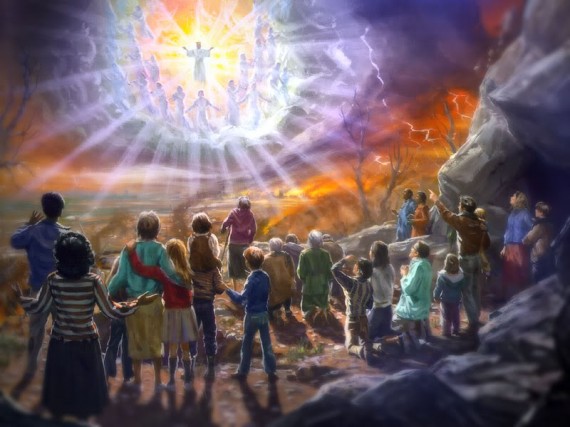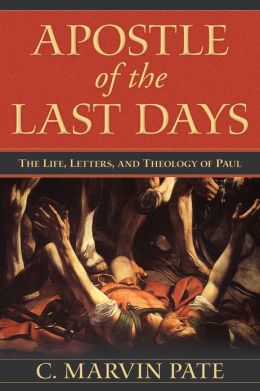RETREAT!!!!!
I give up.
I wave the white flag.
I surrender.
I hang my head in defeat.
I slink off into the woods with my tail between my legs.

Over a year ago I set out to put a theory of mine down on paper about how to reconcile the violence of God with the self-sacrificial non-violence of Jesus Christ. The theory had been percolating in my mind for over a decade, and I finally decided to tackle the issue head on.
After 100,000 words, I give up.
If you read this blog much last year, it is almost the only thing I posted on… up until October 13. Then the posts stopped.
Why?
Because I hit a road block. A pot hole. A speed bump. A dead end.
What was the road block?
Only one little thing called…
…Scripture.
Most of what I had written was a hypothesis, a theory, about how to reconcile the violence of God in the Old Testament with the sacrificial love of Jesus in the New. My book was called When God Pled Guilty, and I was basically arguing that just as Jesus took the sins of the world upon Himself on the cross, so also, somehow, the violent portrayals of God in the Old Testament is God taking the sins of Israel upon Himself through the testimony of inspired Scripture.
In other words, to the outside observer, Jesus hanging on a cross looks guilty (even though He wasn’t). So also, a casual reading of the Old Testament makes God look guilty (even though He isn’t).
I thought that there were enough hints and clues scattered through the Bible to show that the violent portrayals of God in the Old Testament are really just Him taking the blame and shouldering the responsibility for the bad things that happen in this world which He does not prevent from happening.
I thought I had a pretty good theory going…. until I tried to get the theory to match with the violent portrayals of God in Scripture. I soon found that all my theorizing hadn’t gotten me past the 1 yard line… of my own side of the field. I still had 99 yards to go, and the defense was shutting me down faster than the Seahawks shut down Peyton Manning…. (sorry Bronco fans…. I wanted Manning to win too).
Sigh.
Honestly, I should have seen it coming. Want to know why?
My wife was never convinced.
My wife is the greatest theologian and Bible scholar I know.
She has what I call “intuitive theology.” She doesn’t read a lot of books or spend dozens of hours each week studying… but she always knows more theology than I do, and always asks penetrating questions which shoot holes through all my acadamagician ideas (Yes, I just coined that term… it’s a cross between academic and magician… because that’s what most theology is. We throw some verses in a pot, mix in some fancy Greek and Hebrew and a quote from Barth, mix it up, blow smoke in people’s faces, and then Voila! — A book that everyone must buy!)
Anyway, my wife was never convinced of my theory, and so I should have known it was doomed from the start.
Another nail in the coffin though, was when I was recently interviewed by Drew Marshall (listen to the audio) and when I briefly mentioned this idea to him, he asked if I had been smoking marijuana. Ha!
But aside from my wife and Drew, there are a few other reasons I am abandoning this theory.
1. Occam’s Razor
No, this is not a new razor put out by Gillette (Now with 8 Blades!!!).
Occam’s razor is a principle used in science and other problem-solving fields which states the simplest solution is often right. Specifically (according to Wikipedia), Occam’s razor states that among competing hypotheses, the hypothesis with the fewest assumptions should be selected.
If you did any reading of my hypothesis, you know that it was not simple. It is not a hypothesis with the fewest assumptions. To the contrary, my hypothesis was so complex, so difficult to grasp, and so full of details, I myself had trouble keeping it all straight in my own head!
Heck, I had already written 100,000 words on the topic, and was only about half-way done. (A typical 200 page book is about 60,000 words.)
2. Modern Disasters
A second reason I am giving up is because ultimately, I had no good explanation for the most difficult question of all… which is why bad things happen today. My hypothesis did very little to provide an explanation for this.
In my (abandoned) theory, I argued that the Old Testament portrays God holding back disasters upon people until, as a result of their great evil, they departed from God’s protective hand. I think that this can actually be seen time and time again in Scripture.
But then, what does this mean for the victims of Hurricane Katrina, or the December 26, 2004 tsunami that killed almost 250,000 people? How does my theory explain people like Hitler and Mussolini getting to live so long while they brought incredible amounts of evil upon the world? How comes they seemingly hadn’t departed from God’s protective hand?
What did my theory have to say to the millions and millions of little girls who are sold into sex slavery to be raped by as many as 40 or 50 men every single day?
Nothing.
Other than that “God didn’t do it,” my hypothesis could say nothing helpful, loving, kind, or hopeful to such situations or such people caught in a living hell.
3. Couldn’t Even Refute the Calvinists
I am actually not that interested in “refuting” Calvinists, but one area of Calvinistic theology which has always troubled me is the insistence by some that since God is sovereign, He is the cause of everything. If you press them, some will say that while God is not the “author” of evil, He is the primary cause behind all evil, sin, and suffering in the world. (For examples, see John Piper’s quotes here and here.)

Calvinists say that everything that happens in the world is because God’s wills it to happen.
So when a family gets in a car accident and the husband and wife escape, but their children die in a ball of flame when the car explodes, their Calvinistic pastor says that while we don’t understand why such things are God’s will, we must trust that God knows what He is doing because everything happens is according to His will. (This really happened, by the way).
The same argument is applied to Katrina, tsunamis, Hitler, and the raping of little girls.
In my opinion, such a god is monstrous, and is not worthy of worship.
But in the hypothesis I was presenting, I was saying that God “inspired” human authors to write negatively about Him in Scripture so that He could take responsibility for the bad things which happened on earth which He did not prevent from happening.
If that is true, then why I am upset at Calvinists for saying that God caused the bad things that they were ascribing to Him? If my hypothesis is true, isn’t saying “God willed your children to die in a burning car while you watched” the same thing as saying, “God sent a flood upon the earth so that everything which had breath died a horrible death by drowning”?
In my view, of course, God didn’t actually do either thing, but also in my view, God is willing to take the blame for that which He does not prevent, so I shouldn’t get too upset when people blame God for the evil things that happen in the world. After all, God apparently inspired some biblical authors to say the very same things about Him!
If God takes the blame for that which He does not prevent, then it is not wrong to blame God for the horrible events which happen in the world which He does not prevent.
This I could not accept.
4. Back to Ignorance
 Last month I spent several days reading, editing, revising, and arguing with myself about the 100,000 words I had written.
Last month I spent several days reading, editing, revising, and arguing with myself about the 100,000 words I had written.
I got the end (which was actually the middle, because the second half hadn’t been written yet), I realized I could have saved myself 99,997 words, and just written, “I don’t know.”
My fancy 100,000 word answer turned out to be little more than a long way of saying, “I have no idea how to reconcile the violence of God in the Old Testament with the self-sacrificial love of Jesus Christ in the New while still maintaining a conservative view of inspiration and inerrancy.”
Yes, I know. Many of you think I should just abandon inerrancy.
I would really hate to do that.
Pray for Me, Please?
Believe it nor not, this is a crisis of faith for me.
I cannot, CANNOT believe that the God revealed in Jesus Christ is the same God who drowns millions, burns cities, and commands His people to slaughter women, children, and animals.
Something else is going on in the text, but I just cannot figure out what.
My wife, with her intuitive theology, says it is something that cannot ever be figured out.
But my brain, which God gave me, cannot live with the tension. Something must give.
I seem to be left with only two options: Either Jesus truly is violent like God and He was hiding this dark side from us during His ministry, or Jesus truly revealed God to us and the violent portrayals of God in the Old Testament are in error.
The day after writing that post, when I was at work, a new thought occurred to me. A key, I’ll call it. It allowed much of the original hypothesis to remain intact, but organized it all around a central thesis which simplified and clarified the entire idea.
Although… just as I am writing this paragraph… a new thought has occurred to me…. what if? No. It can’t be.
Hmmm….
A brand new theory has just presented itself…
It seems simple…
Memorable…
Elegant…
…Heretical.
Hmm. I better run it by my wife…
If I decide to share it, you’ll be the first to know!
As a side note, many who read my blog tell me that Greg Boyd is coming out with a book later this year that sounds similar to what I was arguing. When I first heard this, I read some of his blog posts and listened to some of his sermons, and honestly, I cannot tell if he is arguing the same thing or not. I guess we will see. Apparently, if the ideas are similar, he has not hit the same road blocks I have… I look forward to reading his book… I think it is called The Crucifixion of the Warrior God.
Note: I wrote the preceding post last Saturday. As you see at the end, in the process of writing the post, a new idea occurred to me. I thought more about it on Sunday, prayed about it, looked at some key biblical texts, and (maybe most important of all – ha!) talked to my wife. She is still not convinced, but she sees promise in the idea. So, I’m back in the saddle again. Hopefully some new posts on understanding the violence of God will be published soon… I am still not sure my new approach has adequate answers to the four problems I stated above, but I think it is a move in the right direction.





 I followed the word “traditional” above with question marks because although this view is traditional for me (it is what I have been taught for most of my life), I am not sure that this is the traditional view throughout all church history. I suspect that it is not.
I followed the word “traditional” above with question marks because although this view is traditional for me (it is what I have been taught for most of my life), I am not sure that this is the traditional view throughout all church history. I suspect that it is not. No, the Kingdom of God primary comes through giving cups of cold water, through speaking the truth in love, through loving, feeding, and clothing those who have less than we do, through hugs to the lonely, meals to the hurting, through being present with the broken.
No, the Kingdom of God primary comes through giving cups of cold water, through speaking the truth in love, through loving, feeding, and clothing those who have less than we do, through hugs to the lonely, meals to the hurting, through being present with the broken.

 So what about John 10:34-36? Jesus is quoting from Psalm 82:6. To understand Jesus, we must understand Psalm 82.
So what about John 10:34-36? Jesus is quoting from Psalm 82:6. To understand Jesus, we must understand Psalm 82.

 Both the Jews and the Romans had hopes and dreams for what would happen at the end of days. Pate shows that Paul wrote to reveal how Jesus fulfills and completes these hopes and dreams.
Both the Jews and the Romans had hopes and dreams for what would happen at the end of days. Pate shows that Paul wrote to reveal how Jesus fulfills and completes these hopes and dreams. 
 He pulled out his Bible and turned to Jeremiah 10:3-4 and had me read it. It says this:
He pulled out his Bible and turned to Jeremiah 10:3-4 and had me read it. It says this:
